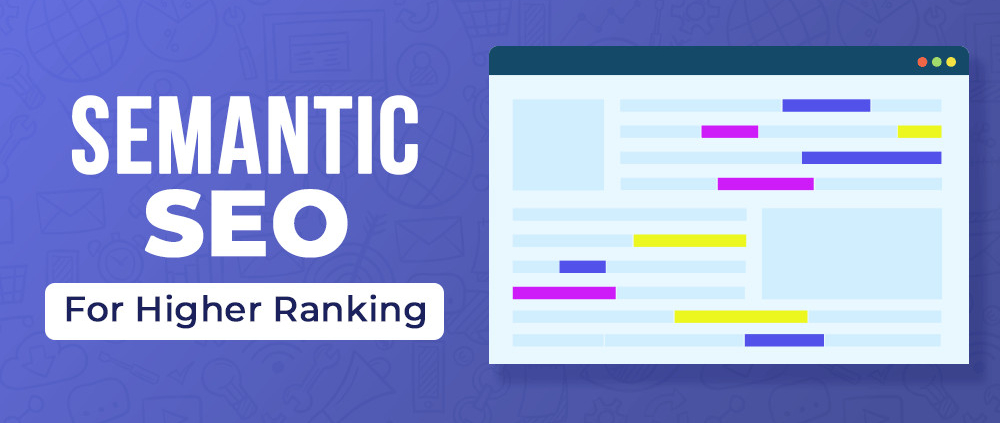Semantic SEO | Boost Rankings with Context-Driven Optimization
Search engines have advanced in significant ways over the years and have moved away from simple keyword matching to gaining an understanding of the context and intention. Traditional optimization strategies often focused on the density of keywords; however, nowadays, search engines like Google make use of advanced algorithms to evaluate significance, relevancy, and connections between words. This approach, which is modern, is known as Semantic SEO. It aids websites to improve their ranking by aligning content to user intentions rather than relying only on keywords.
Understanding Semantic SEO
Semantic SEO is the process of enhancing web content to make it easier for search engines to comprehend the significance behind the terms and words. Instead of focusing on the exact words, semantic optimization ensures that the context, synonyms, related terms, and the general purpose of the text are evident.
For instance, if someone seeks “best running shoes,” they could also be interested in similar topics such as running, fitness, or sports equipment. Semantic SEO helps content rank by addressing these related concepts, providing a more complete answer to the question.
Why Semantic SEO Matters
The search engines of today strive to provide results that best meet the needs of users. With the latest updates from Google’s Hummingbird, RankBrain, and BERT algorithms, they can now analyze the context of the query, rather than searching for specific keywords.
Semantic SEO ensures that:
- Content is current and complete
- The results are in line with the user’s true purpose
- Search engines consider the site as a reliable source
With the help of context-driven optimization, websites can achieve higher rankings, more engagement with users, and more trust signals.
How Semantic SEO Improves Content Quality
When websites implement semantic strategies, the focus shifts to writing content that addresses the larger questions. Instead of writing articles that are stuffed with keywords, semantic optimization promotes depth, clarity, and structure.
This strategy enhances:
- Readability: It is much easier to comprehend.
- Content: Related subtopics are naturally covered.
- engagement: Readers stay longer because they have their questions fully addressed.
In the end, semantic optimization is aligned with both the needs of users and search engine requirements.
The Role of Context in Semantic SEO
A very important feature that is a part of Semantic SEO is the concept of context. Words can have different meanings based on the way they are employed. For example, the word “apple” could mean the fruit or the tech company. Search engines make use of contextual signals from the surrounding words as well as the user’s history and intention to determine which meaning is pertinent.
Through writing documents that provide the context, websites can make sure that search engines are aware of what they’re about. This avoids confusion and assists users in locating the relevant information.
How Semantic SEO Impacts Rankings
Semantic optimization can have an immediate impact on the search engine rankings. If Google determines that a site is comprehensive and contextually relevant, the information will be thought of as beneficial to the users.
Pages that employ Semantic SEO techniques often:
- In featured snippets
- A wider selection of keywords
- Acquire authority in their area over time
This is because semantic content gives not only answers, but also depth, which is what modern search engines value.
Examples of Semantic SEO in Action
To better understand the process of semantic optimization, take a look at a website about “digital marketing.” Instead of just repeating the phrase “digital marketing,” semantic SEO could also cover discussions of related subjects like SEO and email marketing, social media analytics, and online advertising.
By addressing these similar concepts, the page communicates to search engines that it’s thorough, authoritative, and relevant to the context. This improves the chances of ranking higher on many related questions.
Semantic SEO and the Future of Search
While artificial intelligence is continuing to develop and become more sophisticated, the importance of semantic optimization will increase. The future search engine will depend more heavily on neural processing and machine learning in order to assess the meaning of content.
Websites that are embracing Semantic SEO are now likely to enjoy an advantage over time since they are closely aligned with the direction in which the search engines are taking. This will result in higher rankings, greater visibility, and more trustworthiness in an ever-changing online market.
Conclusion
Semantic SEO isn’t just an idea; it’s what’s next for SEO. By paying attention to the meaning, context, and intent of users’ websites, one can go above search engine optimization and provide an actual benefit to their visitors. Context-driven optimization permits search engines to view websites as being comprehensive, relevant, and reliable.
For bloggers and businesses, as marketers, implementing semantic strategies is a crucial step to building long-term online growth. The time of keyword stuffing is over. Semantic optimization is essential to improving rankings and ensuring that you stay ahead of the online landscape.






Leave a Reply
Want to join the discussion?Feel free to contribute!